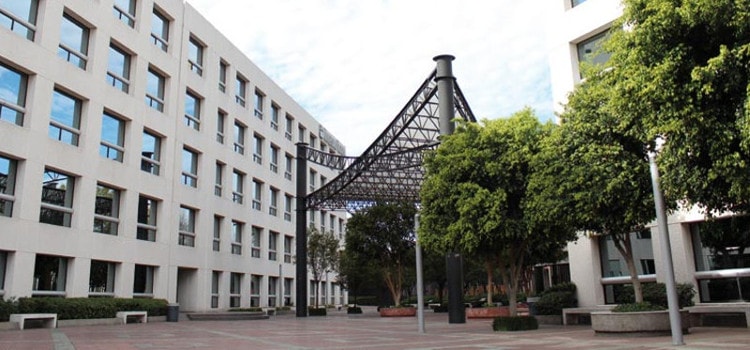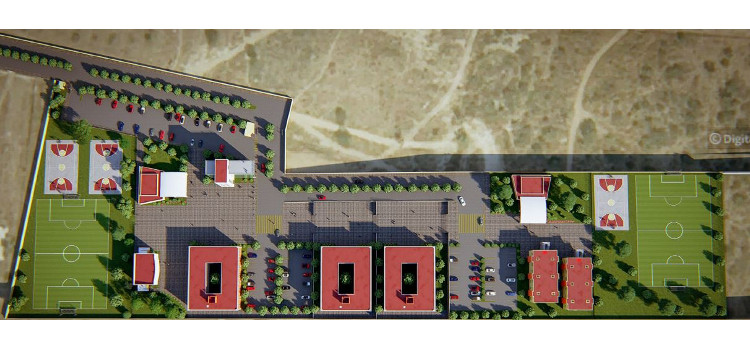Ahead of FIBRA Day 2023 on Sept. 7 in New York City, hosted by AMEFIBRA, the Mexican Association of Real Estate FIBRAs (REITs), REIT.com spoke to a range of FIBRAs about the major developments they see in their markets.
Fibra Educa (BMV: EDUCA) is mainly focused on the purchase, development, ownership, and income stream from the lease of a diverse range of properties predominantly in the educational sector. CEO Raúl MartínezSolares shared his thoughts with REIT.com.
How would you describe fundamentals in your sector of the commercial real estate market today, and for Mexico more broadly?
According to Mexico’s Association of Real Estate Developers (ADI), the real estate sector is the second most important contributor of gross domestic product (GDP), behind the manufacturing industry.
While rising interest rates create a complex environment for real estate, which will continue until the end of 2023, FIBRAs have been mostly resilient. Inflation is indexed in our lease agreements, which has led to outstanding results such as occupancy rates above 90% across the commercial real estate sector, or up to 100% in the case of Fibra EDUCA.
The real estate sector more broadly is expected to have continued strong performance in 2023. Despite a potential deacceleration in the U.S. economy, employment, revenues, and margins are expected to be stable for the sector in Mexico in the coming years.
Where do you see the biggest growth opportunities for your company in the year ahead?
Fibra Educa will continue its ongoing search for the best investment opportunities in the education real estate sector and will continue to strive to maintain management efficiencies that result in attractive returns for our shareholders.
The biggest opportunities we see are growth in the low- and moderate-cost private education sector in Mexico, which strengthens the potential growth of real estate infrastructure in the sector where Fibra EDUCA is a unique player in Mexico and abroad.
The increasing demand for college education in the coming years is leading us to grow on an accelerated basis. According to OECD data, access to university in Mexico increased from 17% to 27% in the last 20 years, compared to the average of OECD countries, which grew from 27% to 47% during the same period. This data reflects that, in the case of Mexico, the rate of people seeking higher education will continue growing until it reaches at least the average of OECD countries.
Another factor contributing to this accelerated development in the sector is the lack of public resources to expand the infrastructure of public universities, which impacts the number of students they can enroll. This is the case with the National Autonomous University of Mexico (UNAM), which only accepts up to 10% of the students taking the annual entrance exam. Educational infrastructure for low- and moderate-cost education will be needed.
We view nearshoring as one of our best opportunities, since people will need more education and training to fulfill those (business) needs and infrastructure for educational providers will be required on a constant basis.
How active is the transaction market and to what extent are you involved?
The transaction market for Fibra Educa is highly differentiated compared to other real estate sectors. The education sector in which we operate has a constant growth trajectory and significant consolidation trends are projected, which means there are permanent transaction opportunities.
For Fibra Educa, the pandemic represented a challenge because of the interruption of on-site classes in Mexico. Consequently, we were unable to analyze our underlying operations and had to take a pause in our transactions.
Since the pandemic, we renewed our analysis and have concluded that to double Fibra Educa's gross profitable area in future years we will have to devote resources to either the bond market or eventually a new public offering.
Can you describe the role sustainability is playing in your overall strategy?
Fibra Educa is specialized in the acquisition and management of education real estate assets, always bearing in mind our corporate social responsibility towards our stakeholders and community.
We remain committed to sustainability, transparency, and integrity principles, and we are sure that, as the economy recovers and market conditions improve, we will continue creating value for our investors and contributing to our country’s sustainable development.
In 2021, we carried out a materiality assessment to establish the main needs and focus areas for Fibra Educa and its stakeholders. Along with an expert consulting firm, we carried out research and analysis. Based on this assessment and its results, we developed our action plan.
Regarding our environmental commitment, our goal is to contribute to mitigating the carbon footprint generated by buildings (37% of total emissions) and achieve the COP21 target by 2050. We have certified 16,563 square meters in four properties as sustainable, three of them at the EDGE Advanced level and one EDGE Certified. Additionally, we have water efficiency strategies in place such as two rainwater collection dams and a wastewater treatment plant that is used for irrigation and sanitation.
For Fibra EDUCA, the educational sector is one of the most important pillars for the transformation of any country and that is why we have implemented an Education Scholarship Program through the Fibra EDUCA Foundation for high school or college students We aim to create a positive impact in our community and provide more and better educational opportunities for students in socially and economically vulnerable sectors.
By the end of 2022, Fibra Educa Foundation had enrolled 822 active students through our scholarships in 20 states within Mexico, with 77.98% of scholarships going to women. We are committed to awarding 963 active scholarships, which represents a 58% increase the beginning of the program in 2021.
We also have world-class corporate governance. In 2022, a U.S. advisory firm completed an assessment of our corporate governance practices, ranking us within the top eight best U.S. REITs in that area. We are focused on increasing the transparency of our operations and ensuring ethical values .
In the first quarter of 2023, our corporate governance practices were strengthened. First, with the integration of mostly independent members to our board, in the pursuit of gender equality and inclusion. Secondly, with the establishment of our ESG Committee to assess risks and lead the way for our sustainable strategy.
We are convinced that sustainability isn´t an independent or isolated issue, but one that essentially shapes our operations.
Is there an aspect to investing in FIBRAs that you wish was better understood?
Investing in real estate through FIBRAs is accessible since these are financial products that require a minimum amount of investment; our lease agreements are indexed to inflation; and, a long-term investment is not just for institutional investors, it is open to everyone.
For students and professionals seeking out career opportunities in Fibras or commercial real estate, what advice would you give them?
According to the Mexican Association of REITs (AMEFIBRA), its members have a total gross leasable area of 26.9 million square meters distributed across 1,934 properties at the end of 2022. In the same year, FIBRAs generated 352,300 jobs in sectors such as commercial, industrial, educational, hotel, and office, among others.
Currently, in the highly competitive employment market, students interested in a career plan within FIBRAs will have to ask themselves which sectors are of interest in terms of their skills and abilities.
Constant training in technology and in the accelerated field of artificial intelligence will be crucial for a successful career plan. Topics such as big data analytics, sustainability management, and cutting-edge adoption of digitalization will be future drivers for the growth of professionals and students in the real estate sector.

